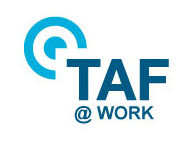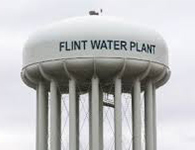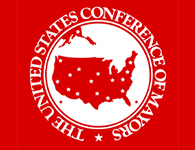Biogas Stressed In EPA Clean Power Plan Implementation Comments
 NACWA filed comments
NACWA filed comments Thursday on EPA’s proposed federal plan requirements, model trading rules, and amendments to framework regulations for the Clean Power Plan (CPP). In the final CPP released last year, EPA recognized that the use of some biomass-derived fuels can play an important role in controlling increases of CO2 levels in the atmosphere, and that increasing renewable energy use and demand-side energy efficiency can lower CO2 emissions from electric utilities. The Agency also specifically recognized the role that water and wastewater utilities can potentially play in increasing energy efficiency and renewable energy generation. The proposed federal plan will be the implementing framework for the CPP in those states not developing their own plan, and the model trading rules were developed to help states in crafting their own plans.
Thursday on EPA’s proposed federal plan requirements, model trading rules, and amendments to framework regulations for the Clean Power Plan (CPP). In the final CPP released last year, EPA recognized that the use of some biomass-derived fuels can play an important role in controlling increases of CO2 levels in the atmosphere, and that increasing renewable energy use and demand-side energy efficiency can lower CO2 emissions from electric utilities. The Agency also specifically recognized the role that water and wastewater utilities can potentially play in increasing energy efficiency and renewable energy generation. The proposed federal plan will be the implementing framework for the CPP in those states not developing their own plan, and the model trading rules were developed to help states in crafting their own plans.
In its comments this week, NACWA stressed that it is important for the federal plan, and both model trading rules, to specifically identify all of the energy-related activities at wastewater utilities, as mentioned in the CPP, to ensure the broadest use of biogas and biosolids as a renewable fuel nationwide. The CPP is facing legal challenges from many stakeholders, including several states, and the fate of the rules is uncertain at this point. NACWA, however, strongly encourages its Member Agencies to work with their states now, while they develop their own plans or decide whether to follow the federal plan, to maximize the opportunities for the wastewater community.
NACWA Files Brief In Mississippi River Nutrients Litigation
 On January 14, NACWA filed a brief
On January 14, NACWA filed a brief 
 in the remanded Gulf Restoration Network, et al. v. EPA
in the remanded Gulf Restoration Network, et al. v. EPA  . The case involves EPA’s response to a petition from activist organizations requesting that the Agency develop federal numeric nutrient criteria (NNC) for the Mississippi River Basin (MRB) and northern Gulf of Mexico. EPA declined to make a necessity determination on the need for NNC and, in 2012, the activist groups sued EPA. NACWA has been involved in the case since 2012, when it successfully intervened
. The case involves EPA’s response to a petition from activist organizations requesting that the Agency develop federal numeric nutrient criteria (NNC) for the Mississippi River Basin (MRB) and northern Gulf of Mexico. EPA declined to make a necessity determination on the need for NNC and, in 2012, the activist groups sued EPA. NACWA has been involved in the case since 2012, when it successfully intervened to protect the interests of its municipal clean water utility members and argued against
to protect the interests of its municipal clean water utility members and argued against
 the development of NNC.
the development of NNC.
The brief filed this week included NACWA and a larger coalition of industrial and agricultural organizations opposed to federally-mandated NNC. The brief argues that EPA provided a reasonable explanation, grounded in the Clean Water Act (CWA), for declining to make a necessity determination. It emphasizes that among the permissible factors EPA considered is the States’ primary role in protecting designated uses through adoption of water quality standards; the varied reasons for nutrient pollution and the importance of “sound watershed management practices” that cannot be either fully addressed nor solely accomplished by actions available to EPA under the CWA; and the resources that would be required from the Agency not only to make a necessity determination of the breadth and magnitude requested by Plaintiffs, but to implement the mandatory federal tasks that would follow.
This week’s brief follows a 2013 federal district court ruling 
 that EPA must make a formal “yes” or “no” decision on the need for federal NNC, but which also found that the Agency has wide discretion in the factors it can consider when making the determination. (Please see NACWA Advocacy Alert 13-15
that EPA must make a formal “yes” or “no” decision on the need for federal NNC, but which also found that the Agency has wide discretion in the factors it can consider when making the determination. (Please see NACWA Advocacy Alert 13-15  for a more detailed analysis).
for a more detailed analysis).
EPA appealed the district court decision to the Fifth Circuit on the question of whether the Agency has discretion to decline to make a decision on federal NNC in the first place. The April 2015 ruling
 from the Fifth Circuit overturned the district court’s decision on this issue, finding that EPA can decline to make a determination as long as the Agency provides sufficient justification. (See NACWA Advocacy Alert 15-05
from the Fifth Circuit overturned the district court’s decision on this issue, finding that EPA can decline to make a determination as long as the Agency provides sufficient justification. (See NACWA Advocacy Alert 15-05  for a more detailed analysis).
for a more detailed analysis).
The Fifth Circuit remanded the case back to the district court to decide whether EPA’s explanation for why it declined to make a determination on federal NNC was legally sufficient. The district court ordered a new round of briefing on the remand, leading to this week’s filing.
NACWA will continue to stay involved in the case during the remand and will report any developments.
Flint Water Crisis Highlights Water Infrastructure, Affordability Concerns
 As the ongoing drinking water crisis in Flint, Michigan continues to grab national headlines, the importance of safe, clean, and reliable water infrastructure is once again front and center in the public’s eye. Although the exact facts of the Flint situation are still evolving, the episode highlights the critical role that water infrastructure plays in the daily lives of Americans – and how the availability of clean water can never be taken for granted.
As the ongoing drinking water crisis in Flint, Michigan continues to grab national headlines, the importance of safe, clean, and reliable water infrastructure is once again front and center in the public’s eye. Although the exact facts of the Flint situation are still evolving, the episode highlights the critical role that water infrastructure plays in the daily lives of Americans – and how the availability of clean water can never be taken for granted.
While the ultimate responsibility for the crisis has yet to be determined, it has underlined the vital importance of a sustainable local-state-federal partnership in ensuring the safety and reliability of our water infrastructure systems. A number of senior state and federal environmental regulators have already announced their resignations as a result of developments in Flint, including EPA Region 5 Administrator, Susan Hedman.
NACWA has been actively tracking developments regarding the Flint situation and speaking to the media from a broad perspective focusing on the need to address the infrastructure funding gap and growing affordability challenges in communities across the country. NACWA will continue working to better understand the issues impacting Flint and is coordinating with other national organizations in the water sector to ensure that there is a common understanding and response to the crisis, including to media requests. The Association will continue these important conversations and keep the membership updated on developments.
NACWA also knows that individual Member Agencies may receive inquiries from local media about Flint and whether there could be similar situations in their communities. If any member would like additional information or suggestions on messaging for these types of requests, please contact
Nathan Gardner-AndrewsThis e-mail address is being protected from spambots. You need JavaScript enabled to view it
.
NACWA Participates In Mayors Water Council Meeting
 NACWA attended this week’s meeting of the Mayors Water Council during the U.S. Conference of Mayors (USCM) Annual Meeting in Washington, DC. Water quantity concerns from California, green infrastructure implementation in the Midwest, and integrated planning were the main topics of discussion for the Council. NACWA is an affiliate member of the Council and continues to coordinate with them and USCM staff on several fronts, including legislation to advance integrated planning and affordability issues.
NACWA attended this week’s meeting of the Mayors Water Council during the U.S. Conference of Mayors (USCM) Annual Meeting in Washington, DC. Water quantity concerns from California, green infrastructure implementation in the Midwest, and integrated planning were the main topics of discussion for the Council. NACWA is an affiliate member of the Council and continues to coordinate with them and USCM staff on several fronts, including legislation to advance integrated planning and affordability issues.
NACWA Discusses Affordability Issues On Capitol Hill
 NACWA met with staff for Representative Marcia Fudge (D-OH) this week to discuss her interest in ratepayer affordability issues related to Clean Water Act (CWA) compliance. The conversation specifically focused on how the Association can support the Rep. Fudge’s efforts to enact H.R. 1093, the Clean Water Compliance & Ratepayer Affordability Act, that she and Representative Steve Chabot (R-OH) introduced earlier this Congress. NACWA also thanked her for her active opposition to last year’s appropriations policy rider
NACWA met with staff for Representative Marcia Fudge (D-OH) this week to discuss her interest in ratepayer affordability issues related to Clean Water Act (CWA) compliance. The conversation specifically focused on how the Association can support the Rep. Fudge’s efforts to enact H.R. 1093, the Clean Water Compliance & Ratepayer Affordability Act, that she and Representative Steve Chabot (R-OH) introduced earlier this Congress. NACWA also thanked her for her active opposition to last year’s appropriations policy rider  that would have required Great Lakes dischargers to eliminate combined sewer overflows. Although Congress will follow a compressed work schedule this session due to the election calendar, there could be opportunities for progress on affordability-related and integrated planning issues – both of which enjoy broad bi-partisan support. NACWA will be closely monitoring this and will report to members as this legislation advances.
that would have required Great Lakes dischargers to eliminate combined sewer overflows. Although Congress will follow a compressed work schedule this session due to the election calendar, there could be opportunities for progress on affordability-related and integrated planning issues – both of which enjoy broad bi-partisan support. NACWA will be closely monitoring this and will report to members as this legislation advances.
Stakeholders Urge Change In FDA Drug Disposal Recommendations
 NACWA joined more than 70 water sector organizations, utilities and other stakeholder groups this week in urging the Food & Drug Administration (FDA) to end its recommendation that certain medications be disposed of by flushing. The letter
NACWA joined more than 70 water sector organizations, utilities and other stakeholder groups this week in urging the Food & Drug Administration (FDA) to end its recommendation that certain medications be disposed of by flushing. The letter , signed by water and wastewater utilities, water sector associations like NACWA and WateReuse, and environmental groups like the Natural Resources Defense Council (NRDC), also encouraged the FDA to clarify that secure medicine take-back programs provide the best disposal method for leftover household medications.
, signed by water and wastewater utilities, water sector associations like NACWA and WateReuse, and environmental groups like the Natural Resources Defense Council (NRDC), also encouraged the FDA to clarify that secure medicine take-back programs provide the best disposal method for leftover household medications.
The FDA's recommendations to flush certain medications have been a source of frustration for NACWA members for some time. The Association has worked on many fronts, including through its Toilets Are Not Trashcans campaign, to seek more consistent guidance from and coordination among EPA, FDA and the White House Office of National Drug Control Policy. In addition to urging the FDA to end its “flush list” recommendation, the letter also seeks to have the federal agencies work to create a single disposal guidance that is endorsed by all federal agencies and consistently used for all federal websites and materials..
NACWA Peak Performance Awards Application Now Available
 The NACWA Peak Performance Awards 2015 Application Packet and Application (MS Excel) are now available to Member Agencies. The Association’s Peak Performance Awards Program recognizes Member Agency facilities for excellence in wastewater treatment as measured by their compliance with their National Pollutant Discharge Elimination System (NPDES) permit, as well as those facilities that operate under a Federal or state equivalent NPDES permit, an underground injection control permit, or a state control mechanism that regulates effluent quality and reuse of reclaimed flows. Recognition is for compliance in the 2015 calendar year. Peak Performance Award applications are due on April 8. 2016. Additional information is available in Member Update 16-01
The NACWA Peak Performance Awards 2015 Application Packet and Application (MS Excel) are now available to Member Agencies. The Association’s Peak Performance Awards Program recognizes Member Agency facilities for excellence in wastewater treatment as measured by their compliance with their National Pollutant Discharge Elimination System (NPDES) permit, as well as those facilities that operate under a Federal or state equivalent NPDES permit, an underground injection control permit, or a state control mechanism that regulates effluent quality and reuse of reclaimed flows. Recognition is for compliance in the 2015 calendar year. Peak Performance Award applications are due on April 8. 2016. Additional information is available in Member Update 16-01 . The Peak Performance Awards Program has honored thousands of NACWA Member Agency facilities since its inception in 1987.
. The Peak Performance Awards Program has honored thousands of NACWA Member Agency facilities since its inception in 1987.
Utility Of The Future Issues Take Center Stage
 The Enabling the Water Resources Utility of the Future
The Enabling the Water Resources Utility of the Future web seminar series kicked off this week with presentations from two NACWA Member Agencies on the energy and resource recovery work underway at their utilities. JoAnn Macrina, Association Board Member and Commissioner for the City of Atlanta Department of Watershed Management, and Nick Menninga, General Manager for the Downers Grove Sanitary District in Illinois, shared their perspectives with nearly 400 participants.
web seminar series kicked off this week with presentations from two NACWA Member Agencies on the energy and resource recovery work underway at their utilities. JoAnn Macrina, Association Board Member and Commissioner for the City of Atlanta Department of Watershed Management, and Nick Menninga, General Manager for the Downers Grove Sanitary District in Illinois, shared their perspectives with nearly 400 participants.
Andy Kricun, NACWA Board Member, Executive Director for the Camden County Municipal Utilities Authority, and Chair of the Association’s Industry of the Future Workgroup, set the stage for the presentations with an overview of the evolution of the Utility of the Future (UOTF) concept. NACWA is collaborating with EPA, WEF, WERF and WateReuse to convene the web seminar series in an effort to increase the reach of the UOTF message to more utilities of all sizes across the country, a key focus for the Association’s workgroup.
As the UOTF concept continues to build momentum, it is also making headlines in local and national media as clean water agencies and communities continue to pursue innovative approaches to a broad array of issues. NACWA has been tracking UOTF stories in the news and shared some of the top articles, collected over the past few months, in Advocacy Alert 16-02 sent earlier this week. The Association will continue to focus on pushing the UOTF agenda and highlighting the great work members are doing throughout the year. Any members that would like to share their UOTF success stories or media coverage should contact
Amber KimThis e-mail address is being protected from spambots. You need JavaScript enabled to view it
.
sent earlier this week. The Association will continue to focus on pushing the UOTF agenda and highlighting the great work members are doing throughout the year. Any members that would like to share their UOTF success stories or media coverage should contact
Amber KimThis e-mail address is being protected from spambots. You need JavaScript enabled to view it
.
Association Seeks Information On Agency Communication Programs
 NACWA’s Communications & Public Affairs Committee is conducting a survey to gather data on the structure, funding, and scope of Member Agency communication programs — as well as to broadly identify the sources and nature of criticism of these types of programs and expenditures. While public agencies are often criticized about public education and awareness spending, effectively messaging the "public purpose" justification for these types of expenditures is critical to proactively avoid, and appropriately respond to, such criticism.
NACWA’s Communications & Public Affairs Committee is conducting a survey to gather data on the structure, funding, and scope of Member Agency communication programs — as well as to broadly identify the sources and nature of criticism of these types of programs and expenditures. While public agencies are often criticized about public education and awareness spending, effectively messaging the "public purpose" justification for these types of expenditures is critical to proactively avoid, and appropriately respond to, such criticism.
The results of this survey will inform the development of models, tools, resources and forums to assist NACWA members with strategic communications and justification of programs and expenditures. Responding agencies' names and information will be used in the aggregate or without attribution. Please take the time to complete this survey by Friday, January 29. Please coordinate internally to ensure that only one survey is submitted per agency. The preliminary findings of the survey will be reported at the in-person Communications & Public Affairs Committee meeting on February 22 during NACWA's 2016 Winter Conference, Back to the Basics . . . Will Compliance Concerns Derail Efforts to Innovate? in San Diego.
Legal Perspectives Provides New Benefit Of NACWA Membership
 In the inaugural edition of Legal Perspectives, Robert A. Weinstock, an associate with NACWA Legal Affiliate Barnes & Thornburg LLP, authored Transforming EPA Support for Green Infrastructure from a Policy Pronouncement into a CSO Consent Decree Priority. In it he shares his analysis of obstacles and opportunities associated with integrating green infrastructure into enforcement and permitting actions, based on the Combined Sewer Overflow Policy.
In the inaugural edition of Legal Perspectives, Robert A. Weinstock, an associate with NACWA Legal Affiliate Barnes & Thornburg LLP, authored Transforming EPA Support for Green Infrastructure from a Policy Pronouncement into a CSO Consent Decree Priority. In it he shares his analysis of obstacles and opportunities associated with integrating green infrastructure into enforcement and permitting actions, based on the Combined Sewer Overflow Policy.
NACWA’s new quarterly Legal Perspectives will feature substantive areas of clean water law, highlight state water legislation or regulation, or provide analysis of recent case law affecting the clean water sector. Legal Affiliates interested in submitting topics for consideration should contact
Erica SpitzigThis e-mail address is being protected from spambots. You need JavaScript enabled to view it
.
- Complete NACWA's Communications & Public Affairs Committee survey by January 29, 2016 (see related story). The survey results will be a critical to provide a benchmark for utilities coming under criticism for expenses related to communication and outreach programs.
- Register for NACWA's 2016 Winter Conference , Back to the Basics . . . Will Compliance Concerns Derail Efforts to Innovate?, February 21 – 24, 2016 at the Westin San Diego in San Diego, CA.
- Applications are now being accepted for NACWA's Peak Performance Awards program for permit compliance in the 2015 calendar year (see related story).
- Become a supporting organization of Water Week 2016! The week of April 10, 2016 has been designated as a week for the water sector to work together to highlight critical water issues shared by all states, cities, and communities.

Big Data Environmentalism
Joe Whitworth, a Winter Conference keynote speaker and President of The Freshwater Trust (a NACWA Supporting Affiliate) discusses how a revolution in conservation is possible through the examination of big data. Are these types of analytics possible in your own watershed? Read on to find out more!